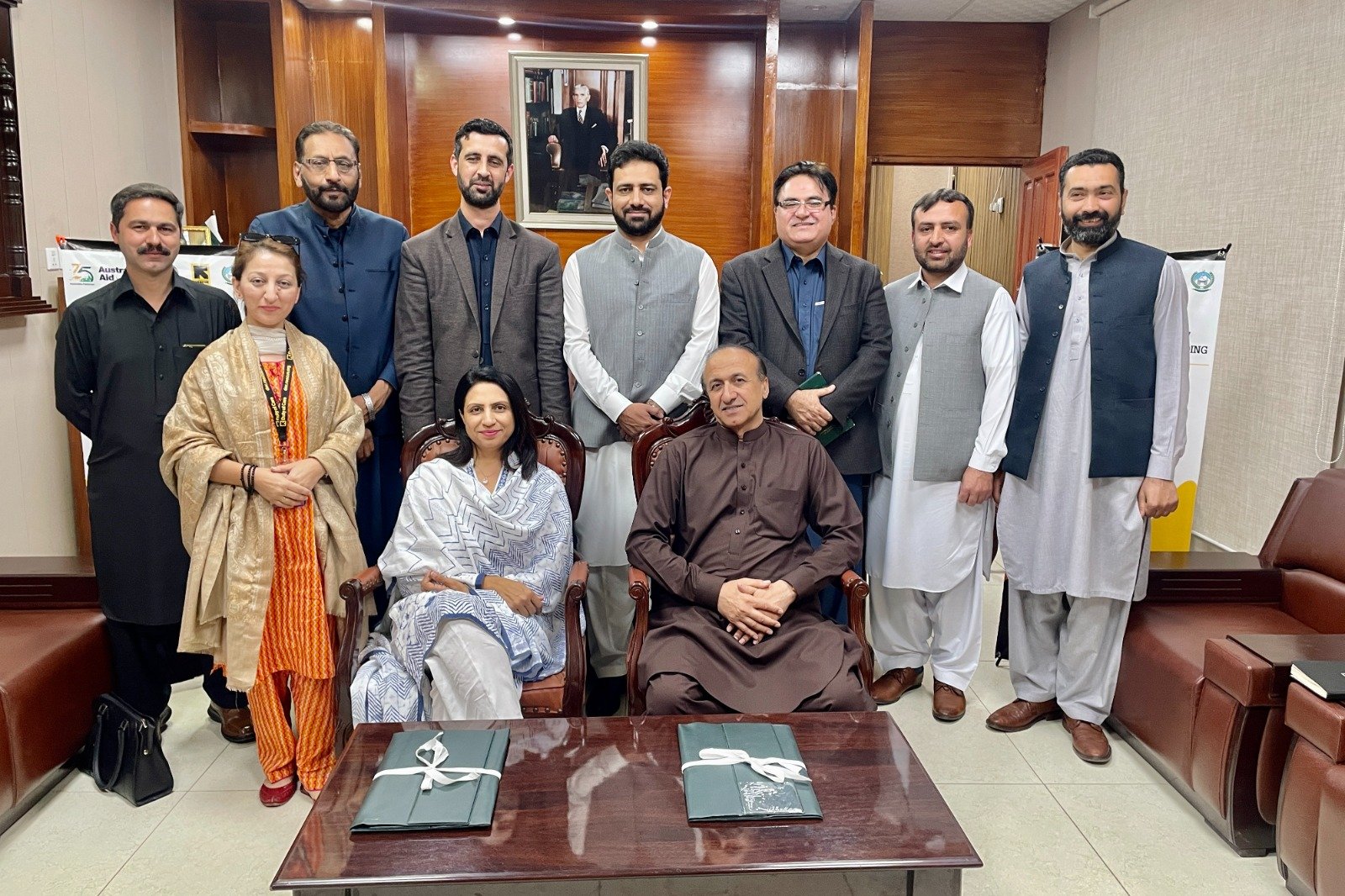Muhammad Idrees, Secretary of PHED, stated during the ceremony that these collaborations can significantly enhance the province’s environmental health.

International Rescue Committee (IRC) and The Public Health Engineering Department (PHED) renewed their respective Memorandums of Understanding (MoU) in a solemn signing ceremony in Peshawar to further their collaboration. This was done in order to continue their commitment to work for environmental health and the provision of clean drinking water, sanitation, and hygiene facilities.
Since 2018, the International Rescue Committee (IRC) and PHED have had a close working relationship and have collaborated on numerous environmental health-related projects.
Training of staff members, knowledge sharing, joint project implementation, behaviour change, and climate smart water and sanitation systems are just a few examples of what this collaboration entails.
Muhammad Idrees, Secretary of PHED, stated during the ceremony that these collaborations can significantly enhance the province’s environmental health.
The PHED and IRC can combine their strengths and resources in the areas of financing, technical know-how, and innovation approaches to address the sector’s common problems. He also mentioned additional potential economic advantages, like lower demands on public health infrastructure and higher school attendance rates.
Speaking at the event was Shabnam Baloch, Country Director of IRC-Pakistan. She stressed the importance of fostering climate and gender inclusive WASH interventions that take into account the various needs and experiences of men, women, and gender nonconforming people in the new reality of climate change.
Furthermore, given that women and girls are frequently disproportionately affected by subpar WASH practises, WASH interventions should be sensitive to their particular needs. This includes making sure that women and girls can access facilities that are secure, private, and safe.
Ms. Shabnam further stressed that approaches to Behavior Change Communication (BCC) can play a crucial role in promoting positive and sustainable WASH behaviours and practises in communities across the province.
The Khyber Pakhtunkhwa public is required to have access to clean drinking water, hygienic facilities, and a healthy environment. This is the responsibility of the Public Health Engineering Department (PHED). The department also develops, implements, and maintains the province’s sanitation and water supply programmes.
Moreover, IRC implemented the “LIFE project” in over 75 villages throughout three districts (Peshawar, Swat, and Buner) of the Khyber Pakhtunkhwa Province with the ongoing assistance of the Australian Government’s Department of Foreign Affairs and Trade (DFAT).
In its four years of operation, the LIFE Project has improved tens of thousands of lives in numerous ways while ensuring more inclusive and equitable dividends. The next stage of the LIFE project will build on climate resilient interventions as a way forward based on the lessons learned.
IRC has previously helped PHED develop its Behavior Change Communication (BCC) strategy in Khyber Pakhtunkhwa. This strategy, which is in line with the national framework, aims to address common practises in solid waste management, drinking water sanitation, and hygiene.
Additionally, IRC and PHED have worked together to manage information for drinking water supply scheme planning and monitoring. This renewed partnership is expected to open the door for empowered communities that are better able to live healthy and fruitful lives.
With significant gaps in access to clean water, adequate sanitation facilities, and good hygiene practises, Khyber Pakhtunkhwa’s water, sanitation, and hygiene services are in poor condition.
Only 71% of households in KP, which is less than the national average of 94%, have access to improved drinking water sources, according to the Pakistan Demographic and Health Survey (2017-2018). Additionally, compared to the national average of 48%, only 28% of households in KP have access to better sanitation facilities.